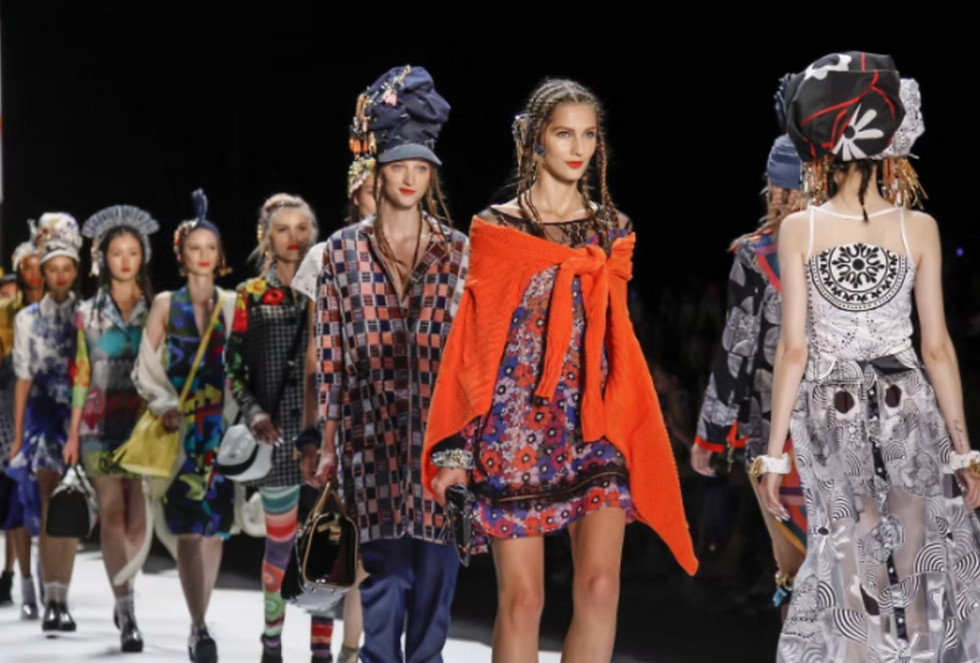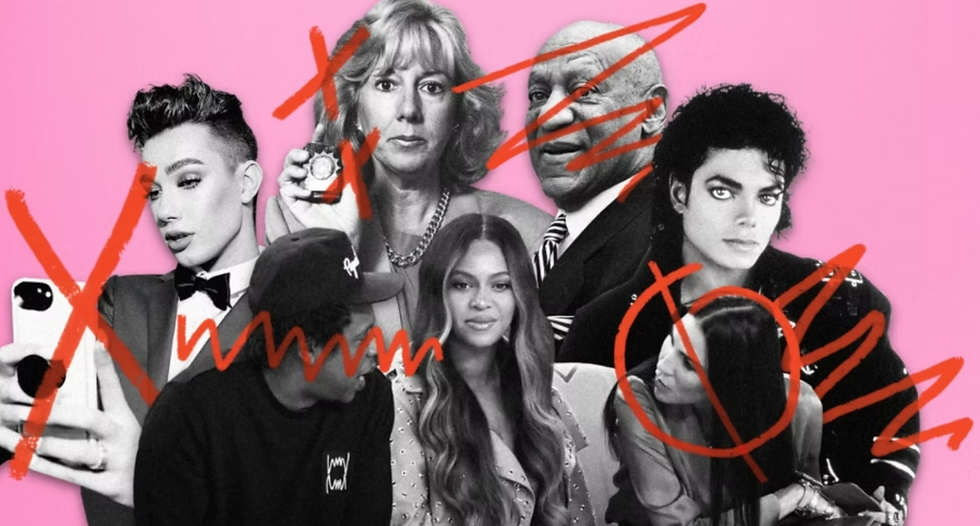FROM RUNWAY TO REALITY: Catwalk Capitalism
- Hope Valenti
- Aug 7
- 2 min read

Fashion Week may showcase style, but it sells something bigger: influence, identity, and the next viral buy.
Twice a Year, the Fashion World Resets, One Stiletto at a Time.
All eyes turn to New York, Paris, Milan, and London, where models strut, designers debut bold visions, and the industry sets its seasonal agenda. Fashion Week isn’t just about clothes. It’s where identity gets styled, influence is manufactured, and global consumerism picks its next obsession.
From the moment the first heel hits the runway, a chain reaction begins. A standout look floods TikTok. A single silhouette dominates headlines. What appears on the catwalk today shows up on shelves before the weekend ends. Fashion Week sparks the runway ripple effect, a wave of cultural pull that reshapes what we desire, mimic, and ultimately buy.
When Innovation Gets Imitated
The runway is a fashion laboratory. Experimental cuts, rich textures, proportions that feel just a little wrong and somehow exactly right. But the applause barely fades before those
once-exclusive pieces are resized, replicated, and mass produced.
Social media doesn't just accelerate trends. It erases the waiting period entirely. Designers
release, influencers amplify, and retailers respond. That coat you saw in V ogue last night is
already hanging on a rack, cheaper, faster, and stripped of its original magic.
Exclusivity has been replaced by immediacy.
Who Set the Tone and Who Missed the Moment
Louis Vuitton and Dior led this season’s conversation. Lisa from Blackpink brought over a
million mentions. Pharrell’s Western-inspired LV collection pushed boundaries both stylistically and culturally, reframing the cowboy not as a caricature but as a symbol of overlooked Black and Native history.
Runways delivered the expected drama, but with clear takeaways:
Structured outerwear (blazers, trenches, oversized coats)
Deep tones like black, gold, and warm brown●
Elevated florals
The rise of cowboycore with context
Meanwhile, fast fashion giants like Zara found themselves under fire. Their runway-inspired
models may hit stores at lightning speed, but critics aren’t applauding. The conversation has
shifted from agility to accountability, and Zara’s approach is facing louder backlash than ever.
Gen Z Isn’t Just Watching. They’re Reacting
This generation grew up in the thick of microtrends and climate crisis. They know the fast
fashion formula: buy, post, discard. But they’re no longer playing along. Their loyalty lies with
brands that offer more than aesthetics, ones that prioritize intention over volume and
transparency over surface-level statements.
Style still matters. But meaning matters more.
Fashion Week Still Leads, but It No Longer Controls
Fashion Week continues to shape what we see, share, and seek. But the runway no longer exists in a vacuum. The audience has evolved. So have the stakes.
Today’s consumer expects more than just spectacle. They are paying attention to what happens after the lights go down. And if the story ends with the show, the brand risks being left behind.
Please take this related poll here: https://take.supersurvey.com/QPO9SIMYP



Comments